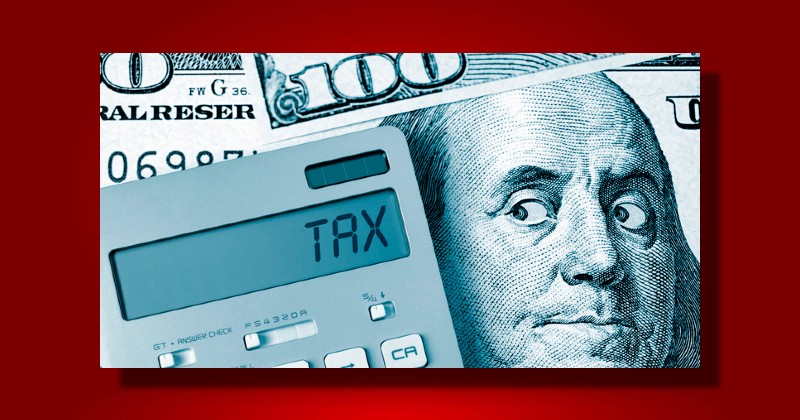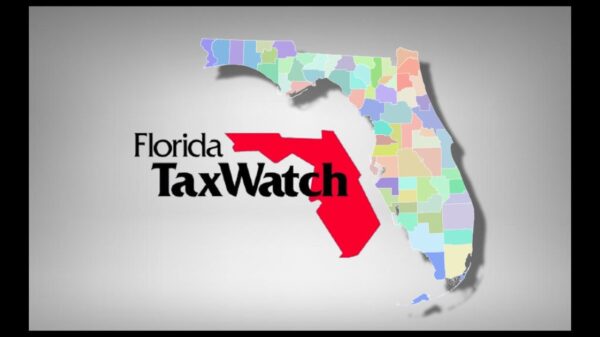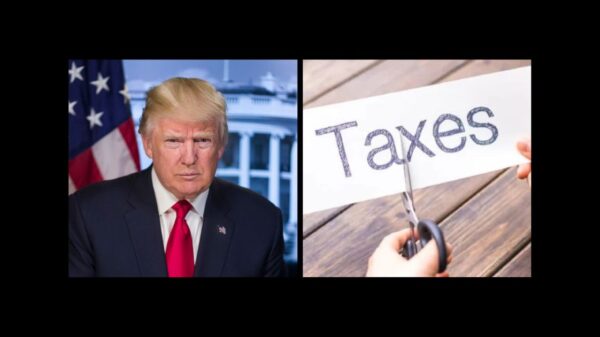Guest Op-Ed by By Dan Savickas
Investing is rarely as easy as it’s made to look on television. In fact, investing is a risky proposition for big hedge funds and individuals with a basic stock portfolio. If the returns were not as promising as they are, few would choose to dip their toes into the fray. However, American businesses – both big and small – rely on investment to continue providing better products and services to their customers. In turn, they provide a worthwhile return to their investors. Unfortunately, a proposal to tax unrealized capital gains threatens that balance.
Recently, Vice President (and presidential candidate) Kamala Harris laid out a plan that would require taxpayers with a net worth of over $100 million to pay a minimum tax on any unrealized capital gains. In this context, an unrealized gain is when a stock or asset increases in value before the owner sells it off to claim the profit.
However, an unrealized capital gain is just that – unrealized. If a stock increases in value, it is not actually income to the owner. The stock could just as easily fall below its original price before the sale, and the owner would incur a loss. Merely because that stock happened to temporarily rise above buying price does not mean the owner made any money off of it.
It is not difficult to see how this could drastically hurt investment in the American economy. Investment is already risky – even with the potential returns. Having to pay taxes on a hypothetical gain creates an incentive to cash out as soon as possible or to avoid getting involved at all. In both scenarios, American businesses lose access to capital. Given the wealth stipulations of the proposals, they will lose access to capital that has the most potential to sustain their growing business.
The wealth requirement poses a number of other concerns. First, it would complicate the tax code. A tax of this nature has never been tried and it would be targeted on a very narrow segment of the population. This will create administrative challenges for an Internal Revenue Service (IRS) that is already behind on the work with which it is currently tasked. Secondly, in order to determine who qualifies, the IRS would have to collect wealth data on many Americans. This adds further administrative challenges. It also adds data security concerns, as the IRS has proven an untrustworthy steward of taxpayer data in the past. This would require them to collect scores of new information.
There are also constitutional concerns with such a tax. In Moore v. United States, the Supreme Court upheld the mandatory repatriation tax in the US. However, a section of Justice Amy Coney Barrett’s concurring opinion in that case bodes poorly for a proposed tax on unrealized capital gains. In Justice Barrett’s words, “One must receive something new and valuable beyond the property she already owns,” before it can be taxed without apportionment to the states.
The Constitution forbade any direct taxes that are not apportioned through the states to avoid taxes being targeted at some states over others. The Sixteenth Amendment allowed taxation of “incomes, from whatever source derived.” Given the concentration of wealth and investment in areas like New York, Delaware, and California, it is unlikely that such a tax would meet the apportionment standard. Further, Moore makes it clear that an unrealized capital gain does not meet the requirement to be income as defined by the Sixteenth Amendment. Therefore, apportionment would be required.
This tax would likely be caught up in the court system for quite some time. That would add even more uncertainty for investors, further stifling investment. Americans desperately desire a simpler tax code. Not only would a tax on unrealized capital gains not fit that bill, but it would add complicated litigation for months, if not years on top of an already-complicated system.
All of this is a choice. Vice President Harris – and any other congressional proponent of this proposal – can walk away from this trial balloon as soon as possible. It is not necessary to put American taxpayers through this ordeal and jeopardize key investment into American jobs and American businesses. Such a proposal would be an unmitigated disaster.
Dan Savickas is director of policy for the Taxpayers Protection Alliance.



















